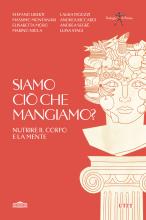Worlds in movement: from primordial to global nomadism
€ 3.00Movement is a fundamental aspect of the human experience, the iconic image of which, in our collective imagination, is represented by the nomadic peoples of Asia. From the Stone Age to today, nomadism has undergone profound transformations and has also represented a way of life that is interconnected with its ‘mirror’ dimension: sedentarism, stable territorial occupation, and permanent settlements and means of production. Nowadays, nomadism is in decline. Often viewed with suspicion and contempt by stable populations and their institutions, this way of life is disappearing and, with it, another possible choice of lifestyle and ‘being’ in the world. It survives in the choices made by ‘nomadic spirits’ (who desire freedom, escape, or exotic fantasies) and by the great majority of migrants, who are forced to move because of persecution, poverty, violence or war.
Video
Ugo Fabietti is a professor of Cultural Anthropology at Bocconi University and chair of the PhD programme in Cultural and Social Anthropology of the Human Sciences Department of the University of Milan-Bicocca. He began his fieldwork among the nomadic Bedouins of the An Nafud Desert (in Saudi Arabia) before turning his research to south-western Pakistan. The author of diverse articles and books on nomadism, he has also written about problems inherent to history and the epistemological structure of anthropology. He is editor of the Culture e Società series for Raffaello Cortina Editore. His most recent works include Dal tribale al globale (with R. Malighetti and V. Matera, 2012), Culture in bilico. Antropologia del Medio Oriente (Bruno Mondadori, 2012); L’identità etnica. Storia e critica di un concetto equivoco (Carocci, 2013); and Materia sacra. Corpi, oggetti, immagini e feticci nella pratica religiosa (Raffaello Cortina, 2014).
Ugo Fabietti & i Dialoghi
2015
Il programma sarà disponibile a breve...
Il programma sarà disponibile a breve...



